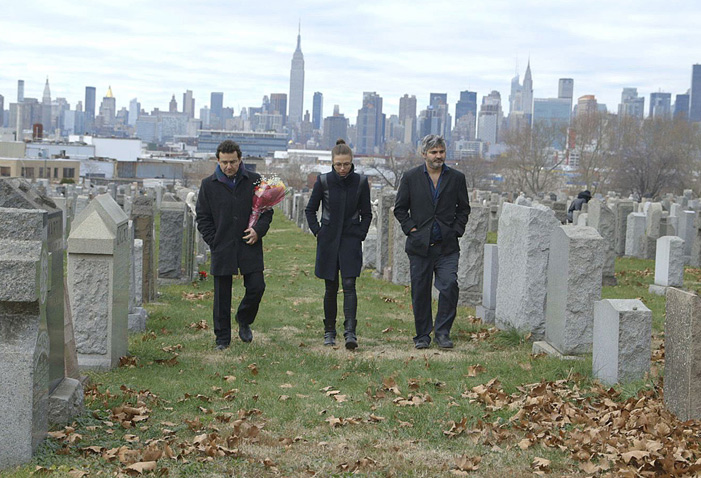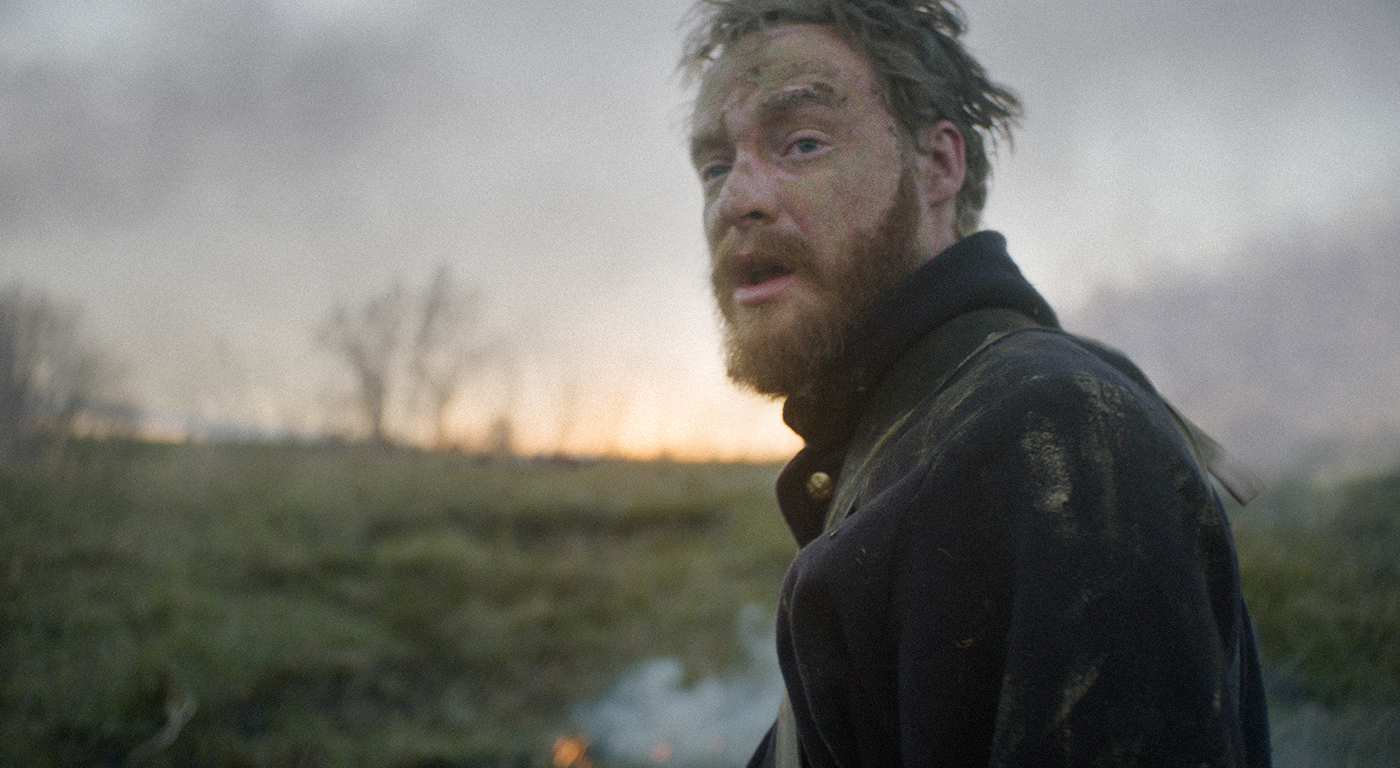By providing your information, you agree to our Terms of Use and our Privacy Policy. We use vendors that may also process your information to help provide our services. This site is protected by reCAPTCHA Enterprise and the Google Privacy Policy and Terms of Service apply.
Memo to Distributors: Buy These 10 Tribeca Film Festival Movies
Eric Kohn

READ MORE: The 2015 Indiewire Tribeca Bible
Another film festival, another crop of great movies without a home. Fortunately, by the end of this year’s Tribeca Film Festival, at least seven movies finalized major distribution deals. The list includes “Sworn Virgin,” the transgender tale that won the festival’s Nora Ephron prize, and acclaimed documentary “Crocodile Gennadiy,” which sold to The Orchard. Other productive buyers at this year’s festival included A24 (“Mojave,” “The Adderall Diaries”), Saban Films (“Backtrack”) and IFC Midnight (“Stung”). However, there are many other highlights from the 2015 lineup that have yet to announce any kind of life beyond it. Here are some of the best movies from this year’s festival that deserve a home.
“Applesauce”
 “This is the reason our culture is in the shitter,” says writer-director-star Onur Tukel in his very funny New York comedy “Applesauce,” and that may as well be the mantra of the movie. The Turkish-American filmmaker is no stranger to acerbic satire, having most recently poked fun at urban struggles with the outrageous vampire comedy “Summer of Blood.” The riotous approach still has teeth in “Applesauce,” and while they don’t dig quite as deep, Tukel’s script about a quartet of self-involved New Yorkers still has plenty of bite. Read the full review here.
“This is the reason our culture is in the shitter,” says writer-director-star Onur Tukel in his very funny New York comedy “Applesauce,” and that may as well be the mantra of the movie. The Turkish-American filmmaker is no stranger to acerbic satire, having most recently poked fun at urban struggles with the outrageous vampire comedy “Summer of Blood.” The riotous approach still has teeth in “Applesauce,” and while they don’t dig quite as deep, Tukel’s script about a quartet of self-involved New Yorkers still has plenty of bite. Read the full review here.
Sales contact: MPI Media Group
nicola@mpimedia.com
“The Birth of Sake”
 A behind-the-scenes look at the process of making Japan’s most famous beverage may not sound like the most compelling hook, but director Erik Shirai’s gorgeous portrait of life inside the close-knit Tedorigawa brewery quickly casts its spell. Focusing on the aging brewmaster’s lifelong commitment to his craft and his hope for the next generation of production led by his promising young son, the movie unfolds as a lush tapestry of sights and sounds, as the factory workers lug pounds and pounds of rice through the factory, knead through the steaming pile and sample the results over the course of a tense work cycle that finds them waking up at the crack of dawn and working until late at night. Shirai’s camera finds the men drunkenly sharing stories at the end of their busy days and consumed in their work with a meditative quality that elevates it to poetic heights.
A behind-the-scenes look at the process of making Japan’s most famous beverage may not sound like the most compelling hook, but director Erik Shirai’s gorgeous portrait of life inside the close-knit Tedorigawa brewery quickly casts its spell. Focusing on the aging brewmaster’s lifelong commitment to his craft and his hope for the next generation of production led by his promising young son, the movie unfolds as a lush tapestry of sights and sounds, as the factory workers lug pounds and pounds of rice through the factory, knead through the steaming pile and sample the results over the course of a tense work cycle that finds them waking up at the crack of dawn and working until late at night. Shirai’s camera finds the men drunkenly sharing stories at the end of their busy days and consumed in their work with a meditative quality that elevates it to poetic heights.
Though the easiest point of comparison to Shirai’s film is “Jiro Dreams of Sushi,” which similarly captured one man’s pride in his career of sushi production, “The Birth of Sake” derives a more outwardly affecting, melancholic ingredient from the solitary nature of the brewmaster’s life. In another life, he might have been a monk, but he brings the same degree of spiritual insight to the laborious task that consumes his world. No one who views “Birth of Sake” will ever see the beverage the same way again.
Sales contact: The Film Sales Company
andrew.herwitz@filmsalescorp.com
“Jackrabbit”
 Director Carleton Ranney’s first feature is a fascinating dystopian tale set in a near future in which civilization struggles to survive in the years following a worldwide event that destroyed modern technology. In its wake, society relies on scraps of old computers and other detritus, which the movie’s pair of young hackers thrive on putting together. The pair of young protagonists assemble clues left by a mutual friend after his suicide that points to a grand conspiracy involving the corporation controlling their fragile existence. Ranney’s dense screenplay is the rare sci-fi endeavor that challenges its audience to follow each new turn while developing its shadowy world. With its retro look and neo-noir atmosphere, “Jackrabbit” is equal parts “The Matrix,” “Blade Runner” and “Hackers,” while maintaining a cooly minimalist style that gets away with just hinting at the bigger picture. A movie that encourages multiple viewings and extensive discussions about its flurry of events, “Jackrabbit” deserves to find a cult life beyond the festival circuit.
Director Carleton Ranney’s first feature is a fascinating dystopian tale set in a near future in which civilization struggles to survive in the years following a worldwide event that destroyed modern technology. In its wake, society relies on scraps of old computers and other detritus, which the movie’s pair of young hackers thrive on putting together. The pair of young protagonists assemble clues left by a mutual friend after his suicide that points to a grand conspiracy involving the corporation controlling their fragile existence. Ranney’s dense screenplay is the rare sci-fi endeavor that challenges its audience to follow each new turn while developing its shadowy world. With its retro look and neo-noir atmosphere, “Jackrabbit” is equal parts “The Matrix,” “Blade Runner” and “Hackers,” while maintaining a cooly minimalist style that gets away with just hinting at the bigger picture. A movie that encourages multiple viewings and extensive discussions about its flurry of events, “Jackrabbit” deserves to find a cult life beyond the festival circuit.
Sales contact: Preferred Content
kevin@preferredcontent.net
“Men Go to Battle”
 Zachary Treitz’s intriguing directorial debut begins in 1861, when Kentucky siblings Francis and Henry run a messy farm together while the shadow of the Civil War creeps up on them. From chopping firewood to hitting on local girls, their lives together follow an amusingly mundane trajectory, though Treitz’s perceptive script — co-written by Kate Lynn Sheil — never ceases to create a thoroughly credible environment steeped in period-specific details. Ultimately, “Men Go to Battle” makes good on the promise of its title when the bumbling Henry finds his way to the infantry as a means of escaping his mundane reality. Treitz manages to hint at traumatic battlefield sequences while keeping the focus squarely on the wayward character as his baffled expression suggests a deeper psychological process at work. At once a witty comedy about arrested development and a deeper rumination on individual experiences during wartime, “Men Go to Battle” is an effective period piece with a contemporary soul.
Zachary Treitz’s intriguing directorial debut begins in 1861, when Kentucky siblings Francis and Henry run a messy farm together while the shadow of the Civil War creeps up on them. From chopping firewood to hitting on local girls, their lives together follow an amusingly mundane trajectory, though Treitz’s perceptive script — co-written by Kate Lynn Sheil — never ceases to create a thoroughly credible environment steeped in period-specific details. Ultimately, “Men Go to Battle” makes good on the promise of its title when the bumbling Henry finds his way to the infantry as a means of escaping his mundane reality. Treitz manages to hint at traumatic battlefield sequences while keeping the focus squarely on the wayward character as his baffled expression suggests a deeper psychological process at work. At once a witty comedy about arrested development and a deeper rumination on individual experiences during wartime, “Men Go to Battle” is an effective period piece with a contemporary soul.
Sales contact: Submarine
ben@submarine.com
“Necktie Youth”
 South African director Sibs Shongwe-La Mer’s black-and-white portrait of a group of troubled teens reeling from their peer’s recent videotaped suicide is a mesmerizing look at the reverberations of tragedy intertwined with the early stirrings of adulthood. The elegantly framed ensemble drama casts a wide net, finding its somber characters engaged in sex and drugs as they alternately cope with their reality and seek release from it. With time, the movie transforms into an eloquent generational statement. As Emily Buder wrote in Indiewire’s review, “the result is a one-of-a-kind fever dream of post-Apartheid South Africa.” Read the full review here.
South African director Sibs Shongwe-La Mer’s black-and-white portrait of a group of troubled teens reeling from their peer’s recent videotaped suicide is a mesmerizing look at the reverberations of tragedy intertwined with the early stirrings of adulthood. The elegantly framed ensemble drama casts a wide net, finding its somber characters engaged in sex and drugs as they alternately cope with their reality and seek release from it. With time, the movie transforms into an eloquent generational statement. As Emily Buder wrote in Indiewire’s review, “the result is a one-of-a-kind fever dream of post-Apartheid South Africa.” Read the full review here.
Sales contact: Premium Films
kasia.karwan@premium-films.com
“Thank You For Playing”
 David Osit and Malika Zouhali-Worrall’s powerful documentary focuses on Ryan Green, a designer who copes with his infant son’s terminal illness by creating a game about it. The movie takes its cues from this remarkable form of digital catharsis, opening with a digital simulation of Green and his wife’s experience when they first received their son’s diagnosis and capturing their ongoing process of funneling the ensuing tragic developments into an innovative video game. Titled “That Dragon, Cancer,” the project uses audio clips from the family’s life as well as embellished moments that allow players to experience the emotional journey firsthand. The filmmakers also capture intimate moments with the family as they turn to their faith as much as the game to help them cope. The result is at once a fascinating take on technological innovation and a stirring look at its ability to address personal experiences. It’s a remarkable window into universal challenges through a distinctly 21st century filter.
David Osit and Malika Zouhali-Worrall’s powerful documentary focuses on Ryan Green, a designer who copes with his infant son’s terminal illness by creating a game about it. The movie takes its cues from this remarkable form of digital catharsis, opening with a digital simulation of Green and his wife’s experience when they first received their son’s diagnosis and capturing their ongoing process of funneling the ensuing tragic developments into an innovative video game. Titled “That Dragon, Cancer,” the project uses audio clips from the family’s life as well as embellished moments that allow players to experience the emotional journey firsthand. The filmmakers also capture intimate moments with the family as they turn to their faith as much as the game to help them cope. The result is at once a fascinating take on technological innovation and a stirring look at its ability to address personal experiences. It’s a remarkable window into universal challenges through a distinctly 21st century filter.
Sales contact: Cinephil
philippa@cinephil.co.il
“The Survivalist”
 Writer-director Stephen Fingleton’s first feature, “The Survivalist,” takes place in a bleak, ruthless post-apocalyptic world that, with its small cast of stone-faced characters in a lawless land, recalls “Mad Max” and its sequels. But Fingleton swaps the barren desert of those movies for lush terrain and equally textured storytelling driven more by tense glances than words. Exclusively set in an unnamed countryside, Irish filmmaker Fingleton’s precise narrative approach has a hypnotic quality that keeps the unnerving proceedings in a state of perpetual uncertainty. Read the full review here.
Writer-director Stephen Fingleton’s first feature, “The Survivalist,” takes place in a bleak, ruthless post-apocalyptic world that, with its small cast of stone-faced characters in a lawless land, recalls “Mad Max” and its sequels. But Fingleton swaps the barren desert of those movies for lush terrain and equally textured storytelling driven more by tense glances than words. Exclusively set in an unnamed countryside, Irish filmmaker Fingleton’s precise narrative approach has a hypnotic quality that keeps the unnerving proceedings in a state of perpetual uncertainty. Read the full review here.
Sales contact: Cinetic Media
sales@cineticmedia.com
“TransFatty Lives”
 New York underground filmmaker Patrick O’Brien narrates “TransFatty Lives,” the documentary about his experience with amyotrophic lateral sclerosis — aka Lou Gherig’s Disease — in the mechanical voice that ultimately replaced his real one after a tracheotomy. The effect is immediate intimacy with O’Brien’s perspective as well as his condition, a remarkable feat that extends to the rest of the movie, which O’Brien himself directed over the course of the decade that has elapsed since his initial diagnosis. The resulting project — which won an audience award at this year’s festival — is a stirring blend of diary film and advocacy, chronicling the debilitating effects of ALS and various means of coping with it, with O’Brien’s perseverance conveyed in each scene by the movie’s very existence. Read the full review here.
New York underground filmmaker Patrick O’Brien narrates “TransFatty Lives,” the documentary about his experience with amyotrophic lateral sclerosis — aka Lou Gherig’s Disease — in the mechanical voice that ultimately replaced his real one after a tracheotomy. The effect is immediate intimacy with O’Brien’s perspective as well as his condition, a remarkable feat that extends to the rest of the movie, which O’Brien himself directed over the course of the decade that has elapsed since his initial diagnosis. The resulting project — which won an audience award at this year’s festival — is a stirring blend of diary film and advocacy, chronicling the debilitating effects of ALS and various means of coping with it, with O’Brien’s perseverance conveyed in each scene by the movie’s very existence. Read the full review here.
Sales contact: Preferred Content
abby@preferredcontent.net
“Uncertain”
 Directors Anna Sandilands and Ewan McNicol take us inside the peculiar setting of Uncertain, Texas, a remote town occupied by several eccentric characters whose livelihood rely on the swampy lake that runs through town. When the water is endangered by an infectious plant, it threatens to destroy the fragile ecosystem surrounding it. While technically non-fiction, “Uncertain” presents a cast of characters as compelling as any fiction: The distinctive ensemble includes ex-cons and world-weary fishermen, as well as one extremely committed hog hunter. The filmmakers’ textured approach to documenting the small community is at once a traditional cinema verite portrait and something far stranger — a mysterious look at alienation that feels oddly familiar in spite of its unique surroundings.
Directors Anna Sandilands and Ewan McNicol take us inside the peculiar setting of Uncertain, Texas, a remote town occupied by several eccentric characters whose livelihood rely on the swampy lake that runs through town. When the water is endangered by an infectious plant, it threatens to destroy the fragile ecosystem surrounding it. While technically non-fiction, “Uncertain” presents a cast of characters as compelling as any fiction: The distinctive ensemble includes ex-cons and world-weary fishermen, as well as one extremely committed hog hunter. The filmmakers’ textured approach to documenting the small community is at once a traditional cinema verite portrait and something far stranger — a mysterious look at alienation that feels oddly familiar in spite of its unique surroundings.
Sales Contact: Submarine
josh@submarine.com
“Very Semi-Serious”
 The New Yorker’s cartoons are famous to anyone familiar with the magazine, but the volume of work behind the number of distinctive illustrations in each issue is a fascinating process invisible to most readers — until now. Leah Wolchock’s lively documentary focuses on the weekly process of longtime New Yorker cartoon editor Bob Mankoff as he sifts through thousands of submissions each week to select the best of the bunch. The filmmaker shifts between Mankoff’s idiosyncratic process as he weaves through countless cartoons and ruminations on the craft by veteran and aspiring cartoonists alike. These include fixtures such as Roz Chast and Mort Gerberg as well as newcomer Liana Finck — all of whom are identified in the film alongside the number of cartoons they’ve managed to land in the magazine, figures they wear like trophies for good reason: Nobody can fully clarify the essence of a New Yorker cartoon, but once Mankoff has made his selection, everything seems to fit.
The New Yorker’s cartoons are famous to anyone familiar with the magazine, but the volume of work behind the number of distinctive illustrations in each issue is a fascinating process invisible to most readers — until now. Leah Wolchock’s lively documentary focuses on the weekly process of longtime New Yorker cartoon editor Bob Mankoff as he sifts through thousands of submissions each week to select the best of the bunch. The filmmaker shifts between Mankoff’s idiosyncratic process as he weaves through countless cartoons and ruminations on the craft by veteran and aspiring cartoonists alike. These include fixtures such as Roz Chast and Mort Gerberg as well as newcomer Liana Finck — all of whom are identified in the film alongside the number of cartoons they’ve managed to land in the magazine, figures they wear like trophies for good reason: Nobody can fully clarify the essence of a New Yorker cartoon, but once Mankoff has made his selection, everything seems to fit.
Wolchok also finds sadness and wisdom in Mankoff’s live outside of his New Yorker office, fueling the perception that he brings the full weight of his intellect to his eccentric job. As a whole, the movie offers an eloquent and often very funny rumination on the distinct, unpredictable nature of the creative process at the root of all good humor — and leaves us with the perception that Mankoff’s responsibility is a very serious one indeed.
Sales contact: Cinetic Media
sales@cineticmedia.com
By providing your information, you agree to our Terms of Use and our Privacy Policy. We use vendors that may also process your information to help provide our services. This site is protected by reCAPTCHA Enterprise and the Google Privacy Policy and Terms of Service apply.

















